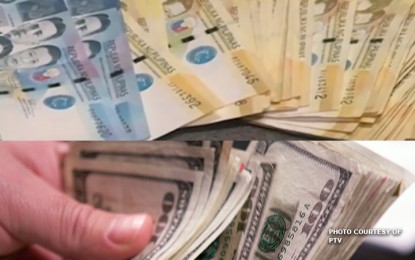
MANILA – The Philippines’ strong external payments position and continued improvement of macroeconomic fundamentals are the main reasons why the peso remains generally firm against the greenback, a ranking Department of Finance (DOF) official said.
In an economic bulletin Friday, Finance Undersecretary Gil Beltran said amid the volatilities in the global economy due in part to concerns on the coronavirus disease 2019 (Covid-19) and trade-related issues, the local currency managed to appreciate by 0.28 percent against the US dollar to date.
This performance made it the fourth resilient currency in the region after the Japanese yen, Hong Kong dollar, and the Chinese renminbi.
“All the other currencies depreciated against the US dollar,” Beltran said.
The peso-dollar exchange rate is also among the stable ones to date, with a co-efficient variation of 0.27 percent, and is the second after the Vietnamese dong among 12 other currencies in the region.
He traced the peso’s resiliency to the “strength and stability (of) the country’s strong balance of payments (BOP) position and rising gross international reserves.”
Bangko Sentral ng Pilipinas (BSP) data show that as of last January, the country’s BOP position, which summarizes a country’s trade with the rest of the world, posted a deficit of USD1.36 billion, a turn-around from the USD2.7-billion surplus during the same period in 2019.
It traced the BOP deficit to “outflows arising from the national government’s foreign currency withdrawals, which were used largely to pay its foreign currency debt obligations, as well as net outflows in foreign portfolio investments.”
Beltran said the country registered a USD7.84-billion BOP surplus in 2019, which accounts for about 2.2 percent of gross domestic product (GDP) and the highest since 2012.
The country’s total foreign reserves as of January this year reached USD87.61 billion, which is equivalent to 7.7 months’ worth of imports of goods and services and payments of primary income.
“Strong macroeconomic fundamentals support the country’s financial position. Manageable budget deficits and prompt adjustment of monetary settings in response to current developments help maintain investor confidence,” he added. (PNA)
